Course Requirements, Faculty, and Learning Objectives
- The effective and correct use of biology scientific terminology
- The collection and analysis of data
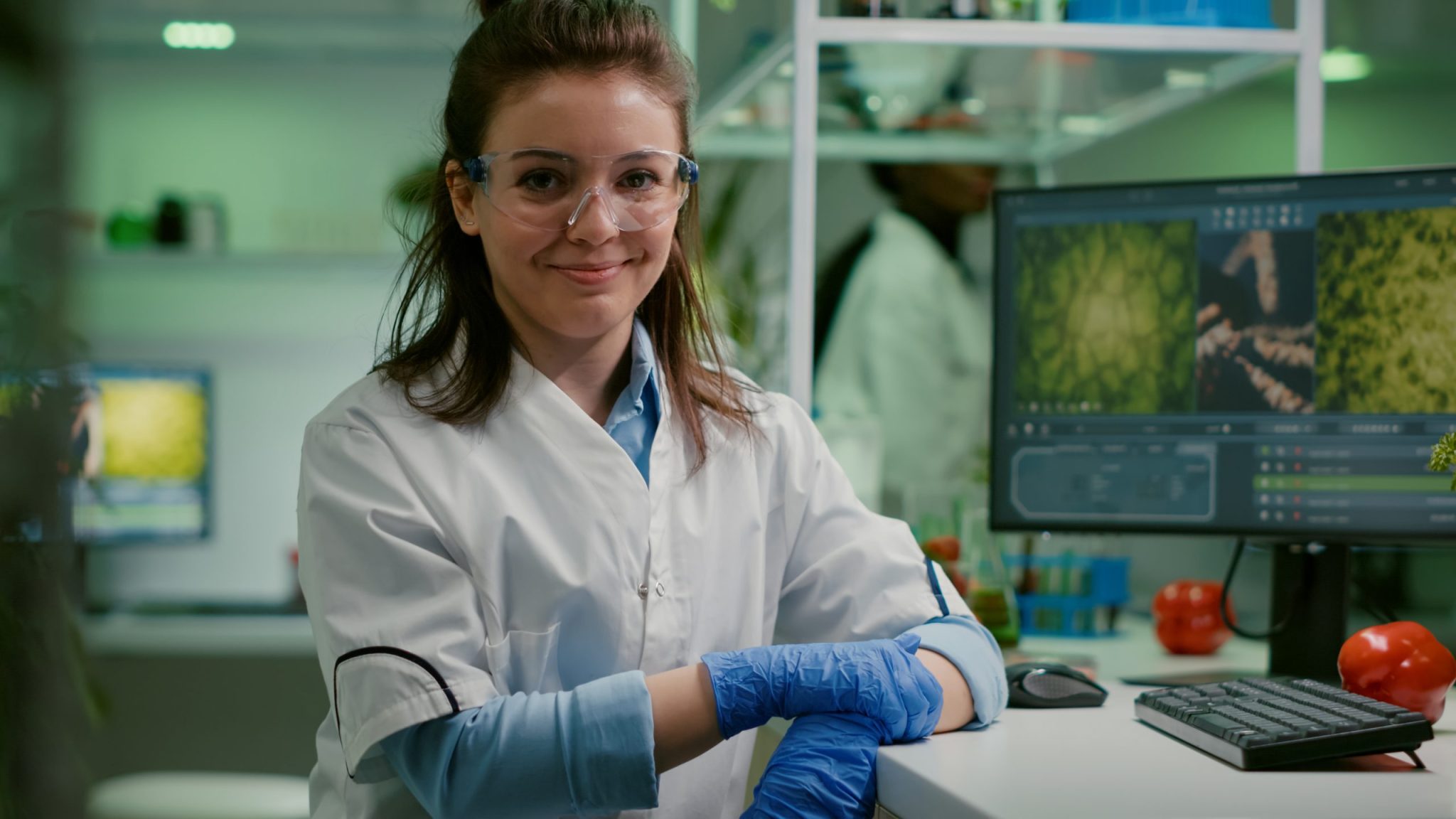
Students are prepared for laboratory and field work, research, teaching, medical school, veterinary school, allied health professions such as physical therapist or physician’s assistant, or graduate study.
The Bachelor of Science in Biology at Saint Rose provides a solid and thorough grounding in the science of biology, enabling you to prepare for careers and graduate programs in areas such as medicine, dentistry, the pharmaceutical industry, environmental science, and public health.
Our location in Albany, the state capital, means we’re close by to major research facilities, including the New York State Department of Health laboratories, as well as major biomedical research and pharmaceutical companies. Is environmental science your thing? The Capital Region is filled with natural beauty, and it’s just a short drive away from the Adirondack National Park.

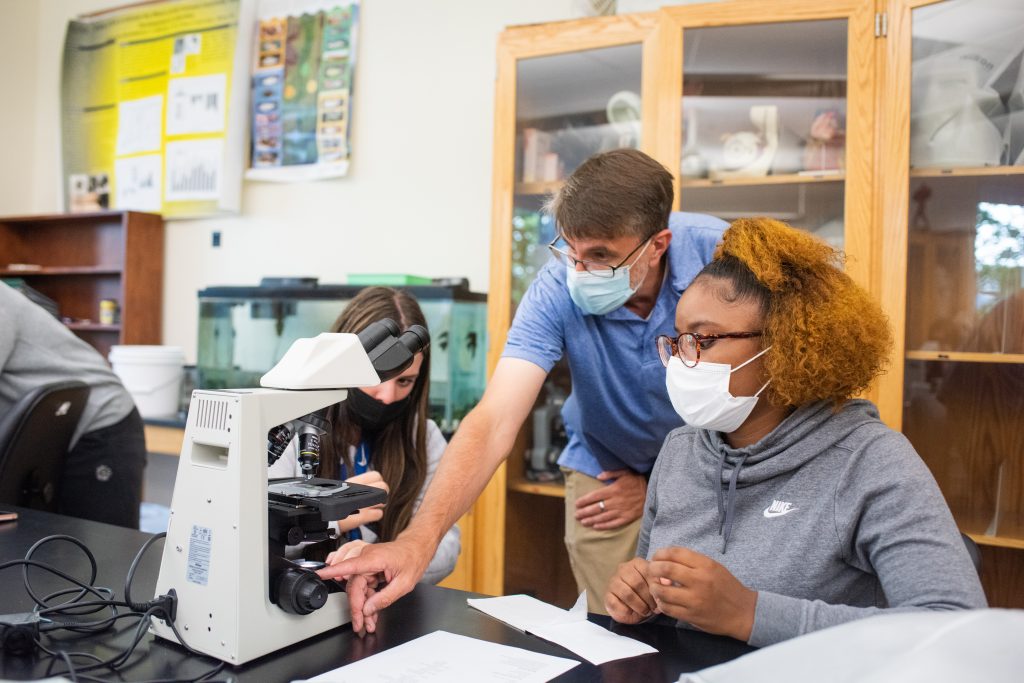
Biology majors enjoy use of our facilities and equipment, including a cell culture facility, cryostat, fluorescence microscopy, digital physiographs (digital data-acquisition hardware), gel electrophoresis apparatus, micro-plate photometer (plate reader), standard and quantitative (q) PCR machines, and YSI multimeter.
The department also offers support for student travel to conferences, awards summer research grants, publishes an annual Undergraduate Research Journal, and holds an all-College undergraduate research symposium each spring.
Our Natural Science Association is an active student-run club that provides students interested in science with an opportunity to participate in science activities during weekly meetings. The Doctors’ Guild, our alumni organization, provides a network to exchange information, connect with alumni and faculty, and foster professional contacts.
Caitlyn Dabagian '20, a biology major, has always dreamed of becoming a marine biologist. She fulfilled part of that dream this summer, working on an undergraduate research project at an oyster farm in Cape Cod, Massachusetts after securing a grant.
Follow Liana Morales ‘19, a biology major and Sabor Latino member, as she takes you through her day at Saint Rose.
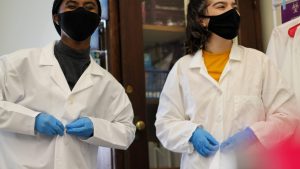
Kelly Hallstrom, an assistant professor of microbiology, made the consequences of water contamination real in 2019 during a campus colloquium on microplastics. Together, Mendoza and Canzano approached to ask if they could conduct their own research with her support. They submitted proposals, and got approval, for separate-but-related collaborations with Hallstrom, who studies bacteria and their relationships with the environment. The students hoped to determine the prevalence of microplastics in the water – and whether the particles have promoted harmful bacterial growth.
Read the StoryUnder the guidance of Dr. Zeeh, Saint Rose granted me the necessary skill set to flourish in my current program. Dr. Zeeh, along with the other professors in the department, helped me tap into my passion and ensure that I would succeed in achieving my goals.
Saint Rose gave me the foundation and support I needed to feel prepared in taking the next step in building my career as a scientist.”

Saint Rose provided me with copious opportunities that allowed me to delve deeper into my interests and discover my passions beyond academics. I received continuous support throughout my four years from the faculty in the science department, which has extended past graduation.
I credit the commitment displayed by the faculty to not only education but to challenge their students, toward my academic and personal accomplishments."

Whenever you’re dealing in science, whatever policy or program you’re working with, you’re trying to elevate to the forefront of awareness. Education is really the beginning of that process.
Saint Rose, from the early onset of my career to now, provided me a platform that allowed me to become elevated."
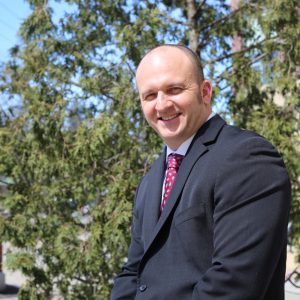
Our faculty are great scholars, but your success is their top priority. Unlike large research institutions, Saint Rose is a place where professors invest in their students and put their energy into teaching, making for compelling classes and great learning outcomes.
My research interests range broadly within the field of analytical chemistry, including environmental chemistry, food chemistry, and forensic chemistry. When working with students in my research, I like to find out what interests them and, together we design a viable research experience around that interest. My students regularly present research posters at Saint Rose’s Undergraduate Research Symposium, and some students have presented posters at the local American Chemical Society Undergraduate Research Symposium and the Sigma Xi induction ceremony.
My research interests include computational and theoretical chemistry. I use molecular dynamics simulations to study properties of various aqueous solutions and interfaces at the atomic/molecular level. I have published numerous peer-reviewed journal articles and have presented at national and regional conferences of the American Chemical Society. I like to incorporate highly motivated undergraduate students into my research projects. These students have presented their findings at the Undergraduate Research Symposium at The College of Saint Rose, and also at meetings of the Eastern New York Section of the American Chemical Society and the Albany Chapter of Sigma Xi.
My research has revolved around plant physiology and ecology, with a more recent focus on terrestrial woody plants. Broadly, I am interested in the conservation of woody plant species, especially via ex situ cultivation, as well as gaining a better understanding of difficult species complexes such as oaks, willows, brambles, and hawthorns.
My research interests range broadly within the field of analytical chemistry, including environmental chemistry, food chemistry, and forensic chemistry. When working with students in my research, I like to find out what interests them and, together we design a viable research experience around that interest. My students regularly present research posters at Saint Rose’s Undergraduate Research Symposium, and some students have presented posters at the local American Chemical Society Undergraduate Research Symposium and the Sigma Xi induction ceremony.
My research interests include computational and theoretical chemistry. I use molecular dynamics simulations to study properties of various aqueous solutions and interfaces at the atomic/molecular level. I have published numerous peer-reviewed journal articles and have presented at national and regional conferences of the American Chemical Society. I like to incorporate highly motivated undergraduate students into my research projects. These students have presented their findings at the Undergraduate Research Symposium at The College of Saint Rose, and also at meetings of the Eastern New York Section of the American Chemical Society and the Albany Chapter of Sigma Xi.
My research has revolved around plant physiology and ecology, with a more recent focus on terrestrial woody plants. Broadly, I am interested in the conservation of woody plant species, especially via ex situ cultivation, as well as gaining a better understanding of difficult species complexes such as oaks, willows, brambles, and hawthorns.
I earned my bachelor’s in biology at Clark University, where I was first introduced to academic research under the guidance of enthusiastic and supportive mentors. It was this experience that made me want a career where I, too, could teach and mentor students. After a few years as a technician in a cancer biology lab, I pursued graduate studies at UMass Medical School and earned my Ph.D. in biomedical sciences. As a result of my previous experiences, I am interested in the ways in which environmental changes affect microbial growth and physiology. I have taught and mentored students at the graduate and undergraduate levels and find that research and teaching are best when paired together. I am also committed to science outreach and communication in the community and enjoy finding ways to incorporate science communication skills in the classroom.
My academic background is diverse. I am currently interested in how organisms cope with environmental stressors. I have worked in labs that focused on teleost reproduction and development, adipogenesis in a mammalian cell line, and ischemia reperfusion in mammalian lungs. Students in my lab are currently determining the physiological effects of the toxin carbaryl on zebrafish development.
I teach first and second semester organic chemistry, lecture, and laboratory and an upper-level laboratory course in organic chemistry. In addition to the organic chemistry offerings, I also teach a course in medicinal chemistry. I include my students in my research which includes the synthesis of heterocyclic organic molecules via transition-metal catalyzed oxidative C-H amination. Two Saint Rose students have been awarded summer research grants to work on these projects.
My research students have also presented posters on their work at the undergraduate research symposium here at the College of Saint Rose, at the annual meeting of the Albany chapter of Sigma Xi and at the annual undergraduate research symposium hosted by the Eastern New York Section of the American Chemical Society.
My research focuses on investigating the molecular mechanisms underlying the development of the precerebellar system. This essential system is found in the brainstem and functions to regulate balance, posture, and motor control by relaying information from the central nervous system to the cerebellum. I also focus on understanding how exposure to teratogens, such as alcohol, during gestation impacts the development of the precerebellar neurons.
I earned my bachelor’s in biology at Clark University, where I was first introduced to academic research under the guidance of enthusiastic and supportive mentors. It was this experience that made me want a career where I, too, could teach and mentor students. After a few years as a technician in a cancer biology lab, I pursued graduate studies at UMass Medical School and earned my Ph.D. in biomedical sciences. As a result of my previous experiences, I am interested in the ways in which environmental changes affect microbial growth and physiology. I have taught and mentored students at the graduate and undergraduate levels and find that research and teaching are best when paired together. I am also committed to science outreach and communication in the community and enjoy finding ways to incorporate science communication skills in the classroom.
My academic background is diverse. I am currently interested in how organisms cope with environmental stressors. I have worked in labs that focused on teleost reproduction and development, adipogenesis in a mammalian cell line, and ischemia reperfusion in mammalian lungs. Students in my lab are currently determining the physiological effects of the toxin carbaryl on zebrafish development.
I teach first and second semester organic chemistry, lecture, and laboratory and an upper-level laboratory course in organic chemistry. In addition to the organic chemistry offerings, I also teach a course in medicinal chemistry. I include my students in my research which includes the synthesis of heterocyclic organic molecules via transition-metal catalyzed oxidative C-H amination. Two Saint Rose students have been awarded summer research grants to work on these projects.
My research students have also presented posters on their work at the undergraduate research symposium here at the College of Saint Rose, at the annual meeting of the Albany chapter of Sigma Xi and at the annual undergraduate research symposium hosted by the Eastern New York Section of the American Chemical Society.
My research focuses on investigating the molecular mechanisms underlying the development of the precerebellar system. This essential system is found in the brainstem and functions to regulate balance, posture, and motor control by relaying information from the central nervous system to the cerebellum. I also focus on understanding how exposure to teratogens, such as alcohol, during gestation impacts the development of the precerebellar neurons.
I gained leadership experience through a 23-year career as an officer in the U.S. Army in the Field Artillery from Lieutenant to Lieutenant Colonel. As an Army physicist, I worked at the Army Research Laboratory on foliage and ground-penetrating radar design and testing. I have attended a number of workshops on innovative techniques for improving student performance and understanding in undergraduate physics courses, to include peer instruction, workshop physics, and studio physics. I use physics education research to inform my classroom presentations, and I am open to working on any physics problem that a student is interesting in investigating.
My teaching interests include genetics, cell biology, principles of biology, human heredity, and my research interests include antibiotic resistance in our environment, human traits influenced by androgen sensitivity, and HIV resistance in humans, Internships and fieldwork.
I gained leadership experience through a 23-year career as an officer in the U.S. Army in the Field Artillery from Lieutenant to Lieutenant Colonel. As an Army physicist, I worked at the Army Research Laboratory on foliage and ground-penetrating radar design and testing. I have attended a number of workshops on innovative techniques for improving student performance and understanding in undergraduate physics courses, to include peer instruction, workshop physics, and studio physics. I use physics education research to inform my classroom presentations, and I am open to working on any physics problem that a student is interesting in investigating.
My teaching interests include genetics, cell biology, principles of biology, human heredity, and my research interests include antibiotic resistance in our environment, human traits influenced by androgen sensitivity, and HIV resistance in humans, Internships and fieldwork.
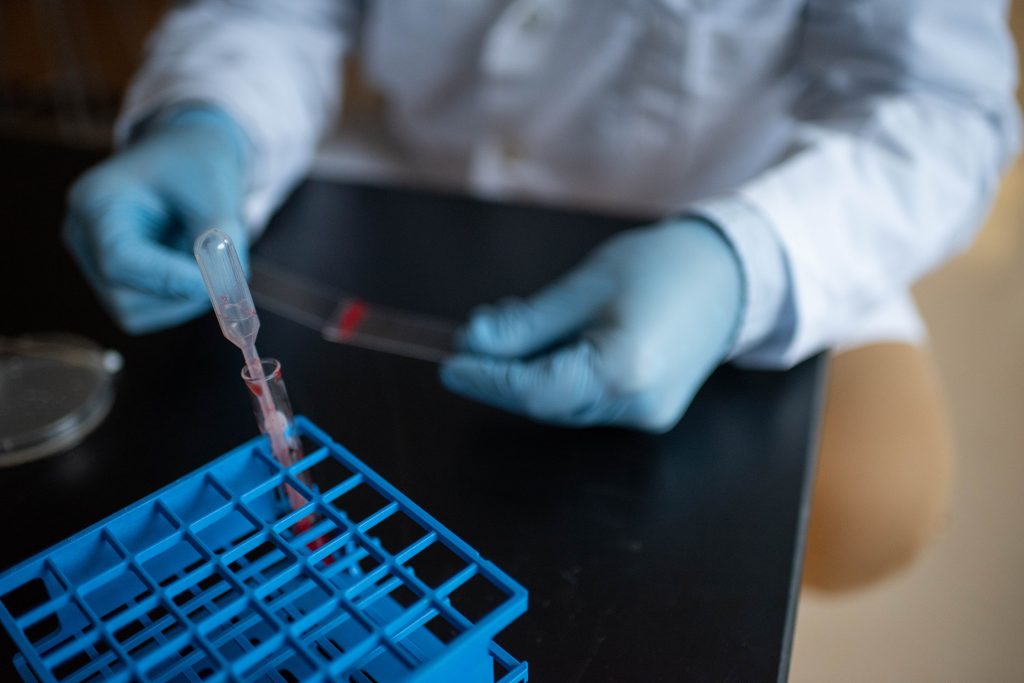
Together, the instructors and career advisors at Saint Rose can provide the resources students require to succeed in their chosen field — including the field of biology.
Of course, if you have any questions, please reach out. We’re here to help.